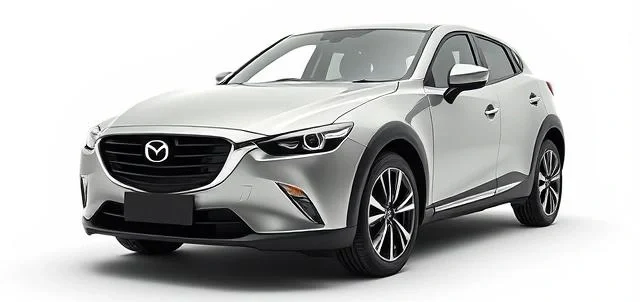
Claim an Extra $50!
Signup to get this Offer

Signup to get this Offer
*Only for insurance paid replacements based out of Arizona. As per local law, no cashback or dinner voucher for South Carolina and Florida. *Rebate for AZ customers will be via virtual Visa Cards.

Experience OEM-grade auto glass service for your mazda, including windshield replacement, windshield repair, side window repair, and ADAS calibration. We offer no-cost replacement with insurance, and Arizona customers can enjoy up to $375 cashback and a free dinner at Rodizio Grill.




| Mazda Model | Estimated Windshield Replacement Cost |
|---|---|
| Mazda CX-5 | Starting from $299 |
| Mazda 3 | Starting from $299 |
| Mazda CX-9 | Starting from $299 |
| Mazda Miata | Starting from $299 |
| Mazda CX-7 | Starting from $299 |
| Mazda CX-3 | Starting from $299 |
| Mazda 5 | Starting from $299 |
| Mazda 6 | Starting from $299 |
| Mazda 2 | Starting from $299 |
| Mazda RX-7 | Starting from $299 |
| Mazda Protegé | Starting from $299 |
After replacing your Mazda windshield, it’s crucial to recalibrate your vehicle’s Advanced Driver Assistance Systems (ADAS). These systems rely on precise camera and sensor alignment to function properly.
At NuVision Auto Glass, we ensure that all ADAS components, such as lane-keep assist, automatic emergency braking, adaptive cruise control, and more, are realigned to factory specifications.
Whether your visit is for a full replacement, proper ADAS calibration ensures your Mazda continues to deliver top safety performance. Whether you’re in Arizona, Florida, or South Carolina, our certified technicians offer mobile ADAS recalibration so you can drive with full confidence after windshield replacement.
Yes, Mazda windshields can be covered under the First-Class Windshield Protection plan, with up to $5,000 in aggregate claim benefits. This includes damage caused by rocks or road debris and ensures that your replacement glass is OEM Mazda-quality
Whether you’re opting for a full replacement or a simple windshield repair, this plan offers exceptional value:
When your warranty ends, trust NuVision Auto Glass for certified Mazda windshield repair and replacement. We provide OEM-grade glass, exact-fit installation, and compliance with all safety standards, backed by a lifetime workmanship warranty.
If you drive an Mazda and have comprehensive or full glass insurance coverage, NuVision Auto Glass offers no-cost windshield replacement with $0 out-of-pocket.
We work directly with your insurance provider to handle all the paperwork, making the process completely hassle-free. Enjoy professional service, OEM-grade glass, and convenient mobile installation, all at no cost to you.
We go beyond glass repair; our Mazda windshield replacement services include unmatched benefits:
Serving Arizona, Florida, Colorado, and South Carolina, NuVision Auto Glass is your trusted partner for Mazda windshield repair and windshield replacement done right.
Drive with confidence, schedule your Mazda windshield replacement today and experience the NuVision difference.
Prices typically start from $299, depending on the model and features. We offer transparent pricing and work with all major insurers.
The service usually takes 1–2 hours, and we complete most jobs within a couple of days, including claim assistance.
Yes. If you have comprehensive coverage, most or all of the cost is covered. We handle the insurance paperwork for you.
We use OEM-grade glass or equivalent that meets Mazda standards for safety, clarity, and fit.
Yes. We offer on-site ADAS calibration to restore safety systems after windshield replacement.
Yes. We offer a lifetime workmanship warranty, covering leaks and fitment. We also guide you on Mazda’s factory protection plans.
Yes! Get up to $375 cashback with insurance-approved replacements. Arizona customers also get a free Rodizio Grill dinner.
Absolutely. We offer mobile Mazda windshield replacement across Arizona, Florida, and South Carolina at your convenience.
Drive safely with premium quality glass. Get no-cost replacement with insurance or
affordable cash payments with easy financing options